Having run a clothing business at An Dong wholesale market (Ho Chi Minh City) for many years, Ms. Trang and many other small traders there will switch to filing taxes starting next year. To comply with the new regulations, she had to buy a laptop, a barcode printer, and an A4 printer to file invoices and documents for her goods, as she could no longer use her phone to "check" inventory as before.
The investment cost for the electronic invoicing system alone exceeded 40 million VND for her business, not including hiring an accountant. "With a kiosk of about 2 square meters, having to hire an accountant earning 8-9 million VND a month is too much for me," she said, adding that her biggest worries now are getting used to the technology, the initial investment, and the operational burden of switching to tax declaration.
"If an invoice is issued incorrectly, it must be canceled, and an explanatory report must be prepared, which is very time-consuming and costly," she shared.
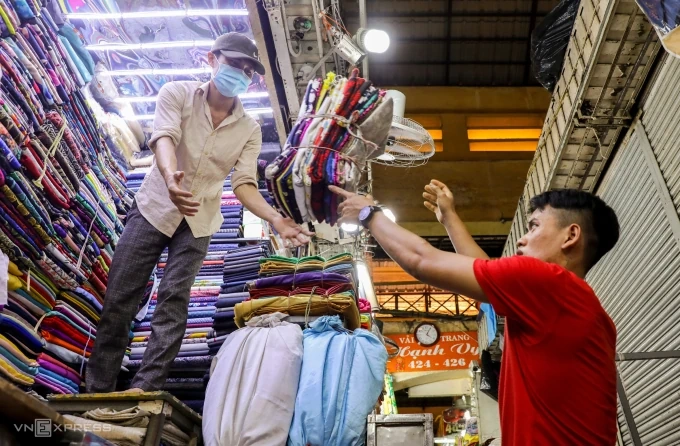
Small traders doing business at Ben Thanh Market, Ho Chi Minh City, March 2020. Photo: Quynh Tran
According to Ms. Trang, the unique characteristic of wholesale business is that it involves selling on credit, with returns and exchanges, and going through many intermediaries. However, regulations require invoices to be issued at the time of sale, even before the money is received. "The pressure on cash flow is immense, and small businesses can't manage it," she said. Not to mention, managing input and output documents also leaves small traders confused.
Many business owners at An Dong wholesale market share the same concerns. Ms. Hong Nhung, who has been selling shoes for over 30 years, said that even though she invested in equipment in June, she is still struggling to operate the computer. "It's very difficult for elderly business owners like me to use the software, and declaring each item is also complicated. If it's implemented at the beginning of 2026, it's really too rushed; we need more time to prepare," she said.
From January 1, 2026, the tax authorities will cease collecting lump-sum taxes from business households and switch to a self-declaration and payment system. According to data from the Ministry of Finance , by the end of 2024, there were approximately 2 million business households and individuals paying lump-sum taxes nationwide. The average lump-sum tax for each household was around 672,000-700,000 VND per month. This means the average daily revenue of these households was less than 1 million VND. Among them, more than 2,000 households had revenues exceeding 10 billion VND, but their lump-sum tax payments were very low, around 0.4% of their revenue.
According to their declarations, the average monthly tax paid by business households is approximately 4.6 million VND, nearly seven times higher than the fixed rate.
At a workshop last weekend, the Chairwoman of the Tax Advisory Council, Nguyen Thi Cuc, stated that there is a lack of equality and transparency in tax payments among household and individual businesses. Therefore, to bring actual revenue "to light," household businesses should be encouraged to abandon the lump-sum tax system and switch to paying based on declarations.
Sharing the same view, Mr. Quach Chanh Dai Thanh Tam - CEO of TPRO, Institute of Economic and Social Research (Saigon University) - believes that converting household businesses to registered businesses or enterprises brings many long-term benefits, such as increased credibility, easier access to loans, expansion of scale, and access to government support policies. "With transparent cash flow, household businesses will reduce risks, operate more stably, and find it easier to cooperate with larger partners," he stated.
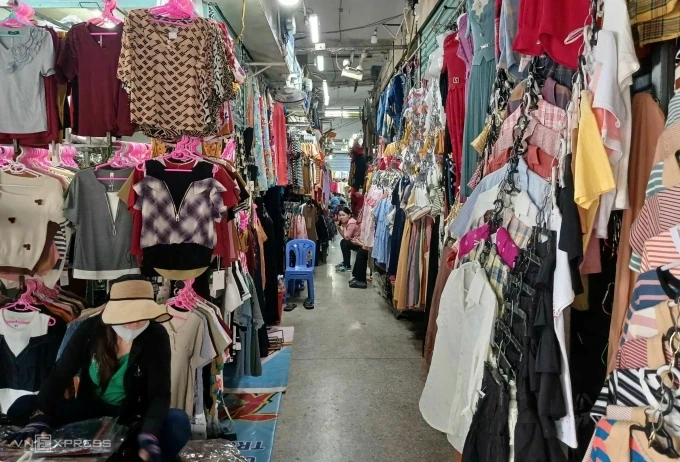
Small traders selling goods at a market in Ho Chi Minh City. Photo: Thi Ha
In fact, the transition has already begun. In the first nine months of the year, more than 18,500 households switched from the lump-sum tax system to the declaration-based system, and nearly 2,530 households became businesses. Approximately 98% of households have declared and paid taxes electronically, and more than 133,000 have registered to use electronic invoices generated from cash registers.
However, according to Deputy Director of the Tax Department Mai Son, individual business households (especially in the food and beverage, service, and online business sectors) still face difficulties in proactively fulfilling their tax obligations. This is because the majority of them are small-scale business owners, elderly, have little habit of keeping accounting records, and are hesitant to access administrative procedures, especially online procedures.
According to him, most of these businesses want to switch, but they lack knowledge, skills, and are hesitant. "The tax department will continue to support and guide them so they can confidently participate in the transition," he said.
A survey by the Institute for Economic and Social Research (Saigon University) revealed that households and individual businesses face five difficulties when switching tax payment methods. These are: reluctance to change, complex costs and procedures, lack of management and accounting skills, limited capital and market access, and limited access to supporting information.
Mr. Quach Chanh Dai Thanh Tam said the biggest bottleneck is not policy but the reluctance of household businesses to change. "Once operations are standardized and accounting records are transparent, household businesses will have easier access to capital, markets, and sustainable development. If they are slow to adapt, they risk being left behind in the digital economy," he observed.
According to a survey by the Hanoi Small and Medium-Sized Enterprise Association, over 65% of informal business households admit to "not having enough staff or knowledge to declare correctly." 90% of households that have registered as businesses say "fear of violating tax regulations" is the biggest obstacle. Mr. Mac Quoc Anh, General Secretary and Vice President of the Association, believes that instead of just "managing," regulators should consider business households and online sellers as partners and provide online support solutions and user-friendly declaration tools.
On the other hand, local authorities also face challenges. A representative from the People's Committee of An Dong Ward (Ho Chi Minh City) stated that the conversion of nearly 4,000 small businesses in the area is not an easy task.
"The shift to declaration-based registration is an inevitable trend, but it requires a clear roadmap and specific guidance to gain public consensus and avoid being left behind," a representative from the ward said, adding that the authorities have requested the management agency to increase direct communication at the market, provide concise guidance, and establish an online consultation channel for traders.
Professor Hoang Van Cuong, a member of the National Assembly's Economic and Financial Committee, believes that the State needs strong support because the initial investment cost for business households to switch to digital tax payment methods is significant. He also proposed developing affordable or subsidized software to make it more accessible to small businesses. According to the latest draft of the amended Law on Tax Administration, the Government plans to allocate approximately 0.1% of total tax revenue to support this digital transformation process. "Business households are ready to pay taxes, they just need simple and easy procedures," he said.
From the perspective of the management agency, Ms. Le Thi Chinh - Deputy Head of the Professional Affairs Department (Tax Department, Ministry of Finance) - said that the industry is implementing a project to transform the model and methods of tax management for business households when abolishing lump-sum tax. They are focusing on three groups of solutions: improving institutions, simplifying procedures, and innovating support. Declaration forms will be automated, integrated with smart electronic services, and direct guidance will be increased at markets and neighborhoods.
In addition, the industry is also experimenting with blockchain and AI applications in a next-generation tax management system, expected to be operational from 2026, with the goal of reducing administrative costs by 44% – higher than the general requirement of 30%. This aims to reform, build trust among taxpayers, and ensure sustainable resources, according to a representative of the tax authority.
Source: vnexpress.net
Source: https://baophutho.vn/tieu-thuong-lo-ganh-nang-ke-khai-khi-xoa-bo-thue-khoan-241782.htm








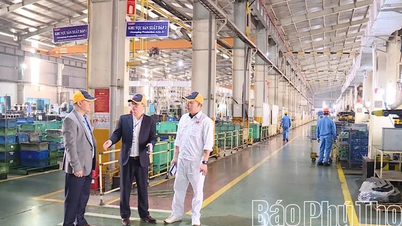






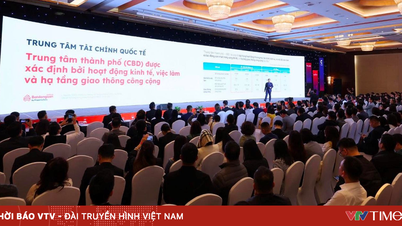
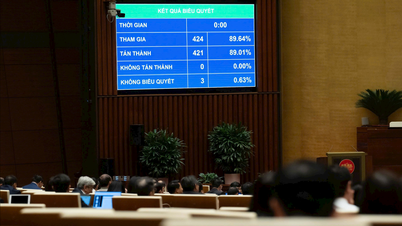

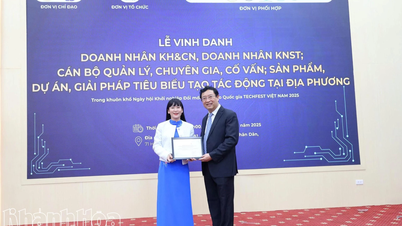













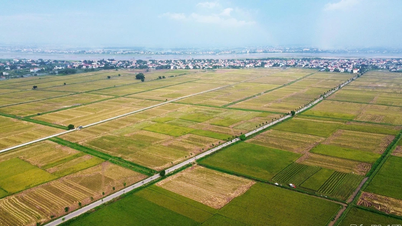

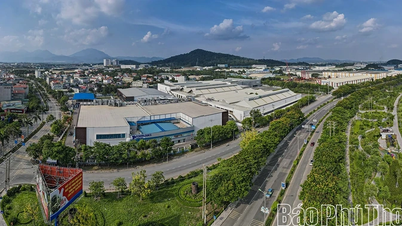







































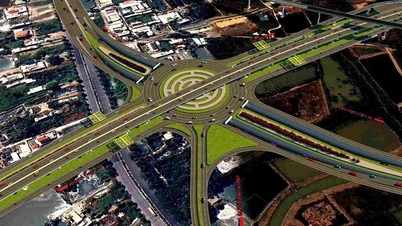














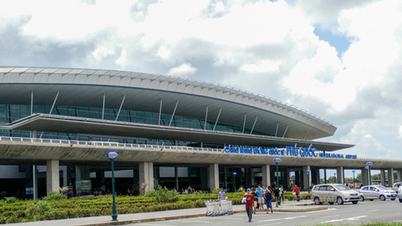



















Comment (0)